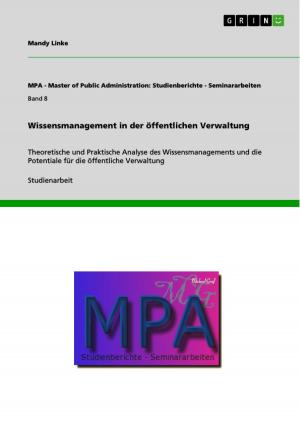A Comparative Analysis of Insider Trading Regulation: New Zealand, Australia and the European Union
Nonfiction, Reference & Language, Law, Business| Author: | Elise Verdonck | ISBN: | 9783656933151 |
| Publisher: | GRIN Verlag | Publication: | March 31, 2015 |
| Imprint: | GRIN Verlag | Language: | English |
| Author: | Elise Verdonck |
| ISBN: | 9783656933151 |
| Publisher: | GRIN Verlag |
| Publication: | March 31, 2015 |
| Imprint: | GRIN Verlag |
| Language: | English |
Seminar paper from the year 2014 in the subject Law - Civil / Private / Trade / Anti Trust Law / Business Law, grade: A-, University of Auckland, course: Corporate Governance, language: English, abstract: Since the financial crisis in 2008 there is no doubt about the fact that the evolving financial markets are essential for economic growth, employment and prosperity. Those markets serve as financing means for the business world and consumers benefit from the availability of a wide range of financial products and the additional advantages that those markets entail (higher pensions and lower mortgage costs). However, if those financial markets want to continue to contribute both to economy and society, the promotion of a good, integer and transparent functioning of those markets is essential. The proper functioning of the financial markets is largely dependent on the confidence of investors in those markets. The fact that investors 'must be placed on an equal footing' is the underlying principle on which this confidence is based. Market participants must be assured to always have access to a minimum set of information before making their investment decisions. In this context, transparency plays an important role. The price of a financial instrument is always the result of the available financial information. And to have proper price formation, it is essential that all the stakeholders have equal access to the relevant information as much as possible. A lot of regulations have already been introduced in this area. Yet, the effectiveness of those regulations can be questioned. For example, directors can make use of certain non-public information to trade in securities. They abuse their superior knowledge and consequently other investors regard this as unfair trading. Due to those unfair practices, other potential investors will turn their back to the financial markets. Insider trading is likely to undermine the investors' confidence in the market and may jeopardise the proper functioning of the market. Therefore insider trading should be prohibited. But in most cases, law enforcement authorities face difficulties in proving the offenses. Hence, insider trading is a social evil and remains difficult to combat. This research essay will compare the current legislation on insider trading in New Zealand, Australia and the EU.This research essay will compare the current legislation on insider trading in New Zealand, Australia and the EU. In the end, it will be clear that the fundamental differences between the three jurisdictions remain off.
Seminar paper from the year 2014 in the subject Law - Civil / Private / Trade / Anti Trust Law / Business Law, grade: A-, University of Auckland, course: Corporate Governance, language: English, abstract: Since the financial crisis in 2008 there is no doubt about the fact that the evolving financial markets are essential for economic growth, employment and prosperity. Those markets serve as financing means for the business world and consumers benefit from the availability of a wide range of financial products and the additional advantages that those markets entail (higher pensions and lower mortgage costs). However, if those financial markets want to continue to contribute both to economy and society, the promotion of a good, integer and transparent functioning of those markets is essential. The proper functioning of the financial markets is largely dependent on the confidence of investors in those markets. The fact that investors 'must be placed on an equal footing' is the underlying principle on which this confidence is based. Market participants must be assured to always have access to a minimum set of information before making their investment decisions. In this context, transparency plays an important role. The price of a financial instrument is always the result of the available financial information. And to have proper price formation, it is essential that all the stakeholders have equal access to the relevant information as much as possible. A lot of regulations have already been introduced in this area. Yet, the effectiveness of those regulations can be questioned. For example, directors can make use of certain non-public information to trade in securities. They abuse their superior knowledge and consequently other investors regard this as unfair trading. Due to those unfair practices, other potential investors will turn their back to the financial markets. Insider trading is likely to undermine the investors' confidence in the market and may jeopardise the proper functioning of the market. Therefore insider trading should be prohibited. But in most cases, law enforcement authorities face difficulties in proving the offenses. Hence, insider trading is a social evil and remains difficult to combat. This research essay will compare the current legislation on insider trading in New Zealand, Australia and the EU.This research essay will compare the current legislation on insider trading in New Zealand, Australia and the EU. In the end, it will be clear that the fundamental differences between the three jurisdictions remain off.















